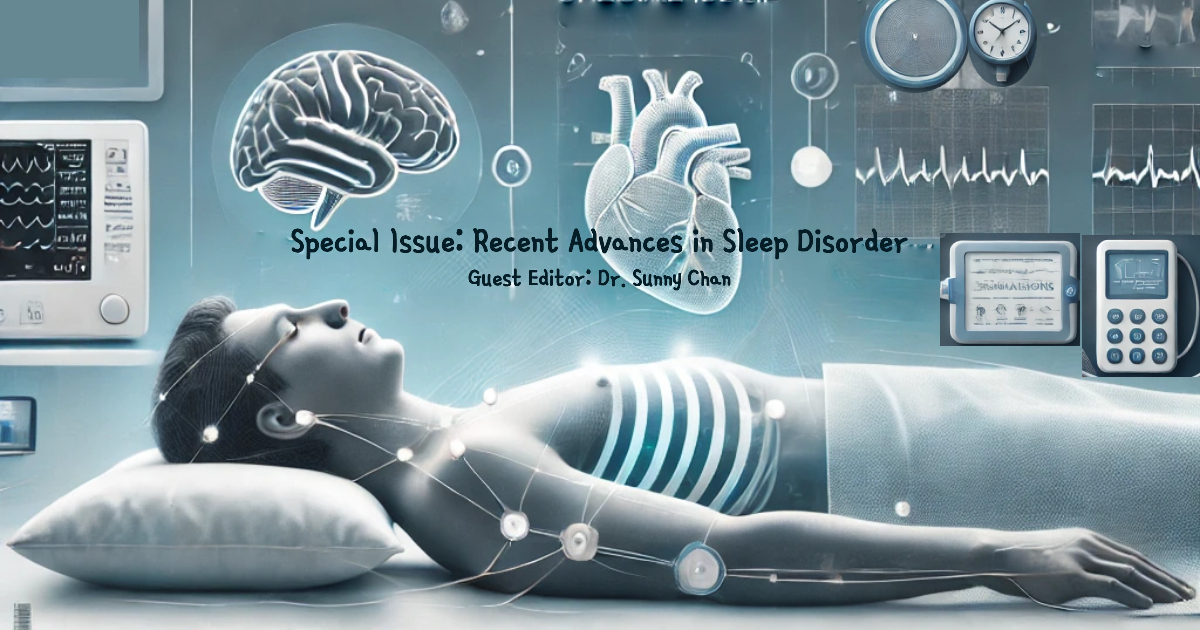Recent Advances in Sleep Disorder
A special issue of Healthcare (ISSN 2227-9032).
Deadline for manuscript submissions: 30 August 2026 | Viewed by 5252

Special Issue Editor
Special Issue Information
Dear Colleagues,
Despite significant advances in the understanding and treatment of sleep disorders in recent years, challenges remain in effectively diagnosing and managing these conditions. A substantial number of individuals continue to experience persistent sleep disturbances that impact their overall health and quality of life. As such, there is a pressing need to explore innovative approaches to understanding the mechanisms underlying sleep disorders and to identify effective interventions.
This Special Issue aims to publish original studies and reviews, including both clinical trials and observational studies, that examine recent advances in the field of sleep disorders. We invite contributions that investigate the aetiology, diagnosis, and treatment of various sleep conditions, including insomnia, sleep apnea, and circadian rhythm disorders. Methodologies may encompass (but are not limited to) polysomnography, actigraphy, subjective sleep assessments, and neuroimaging techniques.
We will also consider narrative, systematic, and meta-analytic reviews that address specific questions related to sleep disorder research. Studies that explore the interplay between sleep and other health conditions, as well as those that examine the impact of lifestyle, environmental factors, and psychological well-being on sleep, are particularly welcome.
We look forward to receiving your contributions.
Dr. Sunny Chan
Guest Editor
Manuscript Submission Information
Manuscripts should be submitted online at www.mdpi.com by registering and logging in to this website. Once you are registered, click here to go to the submission form. Manuscripts can be submitted until the deadline. All submissions that pass pre-check are peer-reviewed. Accepted papers will be published continuously in the journal (as soon as accepted) and will be listed together on the special issue website. Research articles, review articles as well as short communications are invited. For planned papers, a title and short abstract (about 100 words) can be sent to the Editorial Office for announcement on this website.
Submitted manuscripts should not have been published previously, nor be under consideration for publication elsewhere (except conference proceedings papers). All manuscripts are thoroughly refereed through a single-blind peer-review process. A guide for authors and other relevant information for submission of manuscripts is available on the Instructions for Authors page. Healthcare is an international peer-reviewed open access semimonthly journal published by MDPI.
Please visit the Instructions for Authors page before submitting a manuscript. The Article Processing Charge (APC) for publication in this open access journal is 2700 CHF (Swiss Francs). Submitted papers should be well formatted and use good English. Authors may use MDPI's English editing service prior to publication or during author revisions.
Keywords
- sleep disorders
- insomnia
- clinical trials
- observational studies
- actigraphy
- neuroimaging
- sleep assessment
- lifestyle factors
- systematic reviews and meta-analysis
- sleep mechanisms
Benefits of Publishing in a Special Issue
- Ease of navigation: Grouping papers by topic helps scholars navigate broad scope journals more efficiently.
- Greater discoverability: Special Issues support the reach and impact of scientific research. Articles in Special Issues are more discoverable and cited more frequently.
- Expansion of research network: Special Issues facilitate connections among authors, fostering scientific collaborations.
- External promotion: Articles in Special Issues are often promoted through the journal's social media, increasing their visibility.
- Reprint: MDPI Books provides the opportunity to republish successful Special Issues in book format, both online and in print.
Further information on MDPI's Special Issue policies can be found here.






